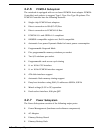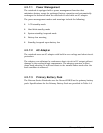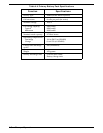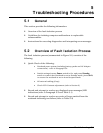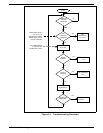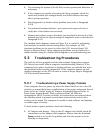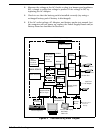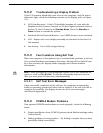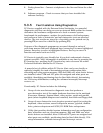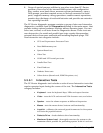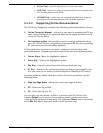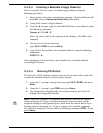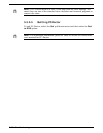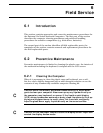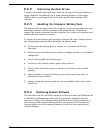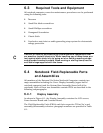
•
Faulty phone line - Connect a telephone to the line and listen for a dial
tone.
•
Software program - Check to ensure that you have installed the
software correctly.
5.3.5
Fault Isolation Using Diagnostics
PC-Doctor, supplied with the Extensa Series Notebooks, is a powerful
diagnostics tool that can help you scan an internal RAM system for viruses,
determine the hardware configuration of a local or remote system,
benchmark its performance, analyze the performance of all subsystems,
and perform a suite of interactive and non-interactive tests on attached
devices. The test results are stored in a log which can be printed out (by
pressing
F2
) or saved in a disk file (by pressing
F3
).
Features of the diagnostic program are accessed through a series of
pull-down menus and basic keyboard keys (cursor keys to move highlighted
pointer, Enter key to select a highlighted feature, Esc key to cancel a
function and move back one level).
PC-Doctor is typically user friendly but if you don’t understand a feature,
context-sensitive "help" information is available at any time by pressing the
F1
function key; pressing the
F1
function key twice accesses the online
Technical Reference Manual for PC-Doctor.
A powerful set of utilities within PC-Doctor (that can be run locally or
remotely) simplify the task of determining system configuration data,
allocating and using system memory, IRQ and DMA use, what device drivers
are installed, what COM and LPT ports are assigned and what ports are
available, identifying partitioning data for fixed disk drive(s), determining
the VGA setup information, reading the software interrupts/interrupt
vectors, etc.
Functionally, PC-Doctor includes the following:
•
Group of nine non-Interactive diagnostic tests that perform a
non-destructive test of the major hardware functions in the notebook
(Processor, Memory, System board, video section, serial and parallel
ports (when loopback adapters are installed), hard disk and floppy disk.
•
Group of seven Interactive tests (require operator input) for testing the
keyboard, video sections, sound subsystem, mouse, joystick, diskette
drive, printer subsystem and SCSI/CD-ROM Drive subsystems.
•
Utility that provides detailed system information such as configuration
data, allocation and use of system memory, IRQ and DMA use, what
device drivers are installed, what COM and LPT ports are assigned and
what ports are available, partitioning data for fixed disk drive(s), VGA
setup information, software interrupts and interrupt vectors.
5-6
Troubleshooting



